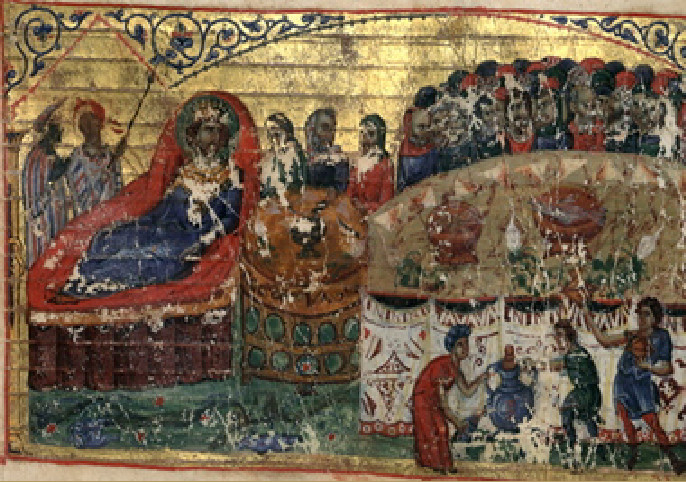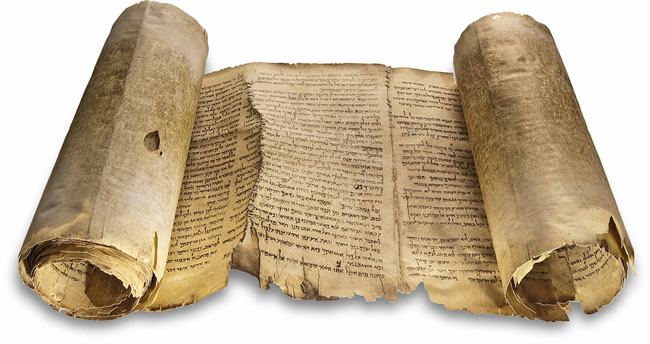As is well known historically, somewhere about 200 years before the time of Christ the Jews translated their Scriptures into the Greek language. This translation was called the Septuagint (normally abbreviated as LXX). It was a well respected document throughout the ancient world including among the Jews themselves, especially among those who commonly used Greek as their language of communication. In fact the Scriptures were translated into Greek to make them more accessible to the rest of the world which used Greek as the universal language of the educated people. Many Jewish scholars themselves relied on the Septuagint in their own writings.
About 100 years or so after the time of Christ, the Jewish rabbis began reconsidering the acceptability of the Septuagint for use by Jews. This seems in part to have occurred because of the Christian reliance on the Septuagint for their own claims about Jesus being the Messiah and fulfilling Old Testament prophecies.
After the Protestant Reformation, Protestant scholars in an effort to discredit the Roman Catholic Church abandoned reliance on the Septuagint and began using only Jewish versions of their Scriptures for translating the scriptures into modern languages. The Masoretic Text which became the official version of the Jewish Scriptures was finalized between the 7th-10th Centuries AD, and thus is not an older text than the Septuagint but a more recent text. The Masoretic text does correspond closely to Hebrew/Aramaic texts from the 2nd Century AD but differs at points from the Septuagint, sometimes significantly.
Modern biblical scholars do consult the Septuagint even when they rely on the Masoretic Text because the Septuagint is more ancient than the Masoretic Text and because the Septuagint was translated from a more ancient Hebrew/Aramaic text and so allows us to know how Jewish scholars 200 years before Christ were interpreting and understanding their own scriptures. The Septuagint was not translated by Christians as Christianity did not exist at that time, so the Christians had no influence over the translation into Greek of the Jewish scriptures. It did happen however that the Christians found the Septuagint to be both a solid basis for Christian thinking and rather useful in polemics against the Jews of later Centuries.
Since the time of the Reformation some Protestant biblical readers have distrusted the Septuagint and don’t accept it as a legitimate bible for Christians to read. Some feel it is too “Roman Catholic.” Others think it an unreliable translation or interpretation of the Jewish Scriptures, even though it was done by the Jews themselves and honored by the Jews at the time of Christ. Additionally, many scholars feel that the New Testament authors were very reliant on the Septuagint as demonstrated by their frequently using the Septuagint when quoting the Old Testament.
As I was reading Robert Charles Hill’s translation of ST. JOHN CHRYSOSTOM’S COMMENTARY ON THE PSALMS Vol. 2 (pp 343-344), I came across two footnotes of his that actually lend credence to the importance of the Septuagint (LXX) for our knowledge of the Old Testament. Both of these footnotes were in regard to Psalm 145.
“…though our (Masoretic) Hebrew text has one verse (13) missing, which the LXX supplies, an inclusion confirmed by the Hebrew manuscripts discovered at the Dead Sea.”
“This is the verse occurring in the LXX and a Hebrew ms found at Qumran; it is not in the Masoretic Hebrew text of this alphabetic psalm at the point where we would expect a verse beginning with the letter nun….”
I have read various arguments about the reliability of the Septuagint version of the Jewish scriptures and arguments for why Protestant Scholars prefer the Masoretic Text when doing translation of the Old Testament. But the Septuagint which is used officially by Roman Catholics and Eastern Orthodox has shown itself to be a good window into the ancient Jewish (Pre-Masoretic) Scriptures. Some have argued that translators in the ancient world were more likely to eliminate parts of texts (accidentally or purposefully) than to add to them. At least in the two instances Hill mentions regarding the Psalms, the Septuagint may be relying on a more ancient text of the Hebrew Scriptures than the Masoretic Text does and thus gives us a better glimpse into the sacred writings of ancient Israel. The Septuagint preserved something the Masoretic text lost.
THE ORTHODOX STUDY BIBLE itself bases its translation of the Old Testament scriptures on the Septuagint unlike Protestant versions of the Bible. The OSB thus follows the ancient Christian and traditionally historic version of the Scriptures which was commonly relied on by the first Christians themselves. This is not to say that common English versions of the bible are wrong, they simply follow Protestant principles in their translations of the Old Testament and thus have a less complete version of the Old Covenant scriptures.
****************************
THE FIRST TRANSLATION OF THE OLD TESTAMENT

Ptolemy giving a banquet for the translators of the Septuagint.
(c) by Biblioteca Apostolica Vaticana
In the third century BC, Ptolemy II, king of Egypt, wanted copies of all known books, including the Hebrew Scriptures, in his library in Alexandria. Since he could not read Hebrew, he brought 72 scholarly Jews from Jerusalem to translate the Old Testament into Greek.
According to a letter claiming to be written by an official of Ptolemy’s court, the translation of the Pentateuch, the first five books of the Old Testament, was miraculously made in 72 days. Each translator—or pair of translators, depending on which version of the story you read—working independently produced 72 (or 36) identical translations.
The translation of the entire Old Testament into Greek that was begun by Ptolemy took two centuries and is called the Septuagint, which is Latin for seventy. It’s the oldest and most important translation of the Old Testament.
For more than two thousand years the Septuagint was used to help translate the Old Testament into other languages. Before the discovery of the Dead Sea Scrolls in 1947, the earliest known manuscripts of the Old Testament were not written in Hebrew, but were copies of the Greek Septuagint.
The Septuagint was the Bible of the early Christian church. When New Testament writers quoted the Old Testament, they usually quoted the Septuagint. Even today the 2,300-year-old Septuagint is the Old Testament text used by the Greek Orthodox Church.
Source: http://www.storyofbible.com/the-first-translation-of-the-old-testament.html
